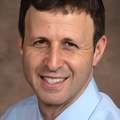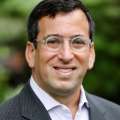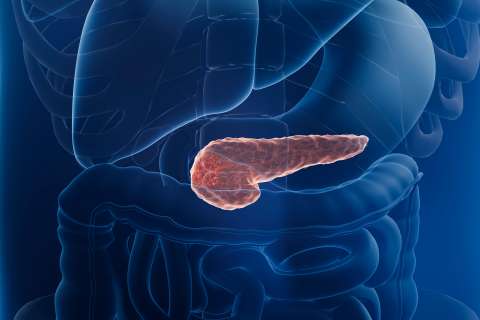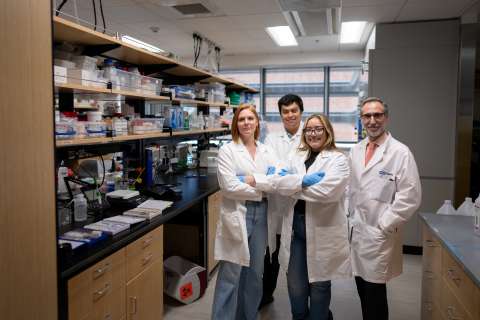Signal Transduction and Therapeutics
Overview
The Signal Transduction and Therapeutics (STT) research program draws its members from five UCLA Schools and a wide variety of basic and clinical departments. The STT research program brings together basic scientists and clinicians to exchange information to further enhance the development of cancer therapies targeting growth signaling pathways, including signal transduction, cell cycle, and metabolism.
The STT research program is focused on robust translational studies that have repeatedly delivered practice-changing high impact research. Using commercially available compounds, there is an increased effort to harness STT research program discovery efforts to generate “in-house” compounds for clinical development. Additionally, the STT research program is leveraging its broad scientific base to link laboratory scientists with clinical investigators to help translate early observations into clinical opportunities and investigator-initiated studies. These include a special focus on malignancies with a high mortality in the Los Angeles County catchment area including breast, lung, and liver cancers.
Specific Aims
The STT Research Program primary objective is to mobilize basic scientists, translational researchers, and clinical investigators with the goal of bringing safer and more effective treatments to cancer patients. The Program leverages its broad scientific base to link laboratory scientists with clinical investigators to help translate early observations into clinical opportunities and investigator initiated studies with an increase effort on using UCLA-generated reagents to accomplish this.
The Program’s specific aims are:
- To identify mechanisms by which cancer cells utilize metabolic perturbations to drive pathogenesis with recognition of alterations that could be therapeutically exploited
- To identify mechanisms by which cancer cells utilize specific signal transduction pathways with a goal of finding specific cancer cell vulnerabilities
- To identify, develop, and evaluate novel therapeutic approaches with the potential to block cancer cell signaling or deprive cancer cells of nutrients or other factors required for growth and survival
Meetings and Seminars
- Participation in the UCLA Health Jonsson Comprehensive Cancer Center seminar series that features invited outside and local faculty
- Monthly Program “Coffees”
- Quarterly meetings for new research program members to present their research
- Quarterly seminars given by members of the research program and by invited speakers from outside institutions
- Biannual mini-symposia on signal transduction and cancer therapeutics topics
Leadership
Director Dr. Richard Finn is a Professor of Clinical Medicine in the Division of Hematology/Oncology. He has extensive experience in the use of pre-clinical models to guide clinical development. He currently splits his time between patient care and laboratory and clinical research. Finn is an internationally recognized leader in liver cancer and breast cancer research, having brought several clinical studies forward from laboratory-generated ideas. While working with Dr. Dennis Slamon in the Translational Oncology in Research Laboratory (TORL), he was directly involved in the studies that led to the development and global approval of CDK 4/6 inhibitors in breast cancer. He is the immediate past president of the International Liver Cancer Association (ILCA). He is a senior editor at Clinical Cancer Research, associate editor at Breast Cancer Research, on the editorial board of the Journal of Hepatology, and an ad hoc reviewer for The New England Journal of Medicine, Lancet, and Lancet Oncology.
Director Dr. Edward Garon focuses on correlative research in addition to clinical investigation. A major focus of his research is specimen banking from patients in the clinic. By using data generated from patients in the clinic who consent to correlative research projects, he uses the clinic as the main source of discovery to inform the clinical trials that he conducts. This research has led to first and last author clinical and biomarker manuscripts in high impact clinical journals such as New England Journal of Medicine and Lancet, as well as contributions to many high profile institutional and collaborative publications in high impact scientific journals. Although the specimen banking is of benefit across the institution, this type of research benefits greatly from interaction with outside institutions to avoid the biases seen at a single center. As a result, Garon's research is frequently collaborative with outside centers. He has served on several committees with the American Society of Clinical Oncology, where he is currently on the cancer research committee. He is on the immunotherapy guideline committee for the Society of Immunotherapy of Cancer, the Scientific Advisory Board of advocacy group Lungevity, and has served on committees for NIH sponsored clinical trial consortiums and CTEP.
- Fayal Abderemane, PhD
- Evan (Dale) Abel, MD, PhD
- Tara Aghaloo, DDS, MD, PhD
- Sidharth Anand, MD
- Keriann Backus, PhD *
- Aditya Bardia, MD, MPH, FASCO *
- Jihane N. Benhammou, MD, PhD
- Steven Bensinger, VMD, PhD *
- Nicholas M. Bernthal, MD
- Ambre M. Bertholet, PhD
- Mehdi Bouhaddou, PhD
- Gregory A. Brent, MD
- Ronald Busuttil, MD, PhD
- Nicholas Cacalano, PhD
- Hua Linda Cai, MD, PhD
- Helena Chang, MD
- Bartosz Chmielowski, MD, PhD *
- Robert Chong, MD, PhD
- Heather Christofk, PhD *
- Timothy Cloughesy, MD *
- Steven W. Cole, PhD *
- John Colicelli, PhD
- Stephanie Correa, PhD *
- David Dawson, MD, PhD *
- Nanette DeBruhl, MD
- Timothy Deming, PhD *
- Begona Diaz, PhD
- Timothy R. Donahue, MD *
- Alexandra Drakaki, MD, PhD
- Guido Eibl, MD
- David Eisenberg, PhD *
- Herbert Aaron Eradat, MD
- Michael Fishbein, MD
- Loren Fong, PhD
- Samuel French, MD, PhD *
- Joseph Gera, PhD
- Marco Giovannini, MD, PhD *
- John Glaspy, MD, MPH *
- Jonathan Goldman, MD *
- Antoinette S. Gomes, MD, FAHA, FSIR
- Arjan Gower, MD, MS
- Anna S. S. Gukovskaya, PhD
- Yousang Gwack, PhD *
- Nalo M. Hamilton, PhD, MSN
- Tikvah (Tiki) Hayes, PhD *
- Anthony Heaney, MD, PhD *
- Randy Hecht, MD
- Yvonne Hernandez-Kapila, DDS, PhD *
- Andrea L. Hevener, PhD
- O. Joe Hines, MD
- Shen Hu, PhD, MBA
- Jing Huang, PhD *
- Willy Hugo, PhD *
- Varghese John, PhD
- Brian E. Kadera, MD
- Tania Kaprealian, MD
- Hyun (Grace) J. Kim, PhD
- Jonathan C. King, MD
- Jennifer Kolb, MD, MS
- Gottfried Konecny, MD *
- Ohyun Kwon, PhD
- Albert Lai, MD, PhD *
- John K. Lee, MD, PhD *
- Min Lee, PhD
- Raphael Levine, PhD
- Gang Li, PhD *
- Jason M. Link, PhD
- Marla Lipsyc-Sharf, MD
- Roger Lo, MD, PhD *
- Diana Marquez-Garban, MD
- Julian A. Martinez-Agosto, MD, PhD, FACMG
- Martina McDermott, PhD
- Aaron Meyer, PhD *
- Carrie M. Miceli, PhD
- Jasmine Mitchell, MD, MS
- Neda A. Moatamed, MD
- Hosein Mohimani, PhD *
- Milica Momcilovic, MD, PhD
- Brian Na, MD
- Bita V. Naini, MD
- Stanley Nelson, MD
- Phioanh (Leia) NghiemPhu, MD
- Nicholas G. Nickols, MD, PhD *
- Neil O'Brien, PhD
- Rene R.S. Packard, MD, PhD
- Allan Pantuck, MD, MS, FACS
- No-Hee Park, DMD, PhD
- Stefan Petrovic, PhD
- Richard Pietras, MD, PhD *
- Helen Rausch, PhD
- Elaine Reed, PhD
- Antoni Ribas, MD, PhD *
- Lee S. Rosen, MD
- Saeed Sadeghi, MD
- Ritu Salani, MD, MBA
- Danielle Schmitt, PhD *
- David Shackelford, PhD *
- Orian Shirihai, MD, PhD
- Arun Singh, MD
- Rajan Singh, PhD
- Dennis Slamon, MD, PhD *
- Michael V. Sofroniew, MD, PhD
- Melissa Spencer, PhD
- Sonal Srikanth, PhD, MS
- Peggy S. Sullivan, MD
- Hui Sun, PhD
- Fuyuhiko Tamanoi, PhD
- Sotirios Tetradis, DDS, PhD *
- Sarah E. Tomassetti, MD
- Jaydutt V. Vadgama, PhD
- Maria A. Velez, MD, MS *
- Zev Wainberg, MD, MSc *
- Marilene Wang, MD *
- Yibin Wang, PhD
- James Waschek, PhD
- Joanne B. Weidhaas, MD, PhD, MBM *
- Jennifer Wilson, PhD *
- David Wong, DMD, DMSc *
- Deborah Wong, MD, PhD
- Yanyuan Wu, MD, MSCR
- Isaac Yang, MD
- Xia Yang, PhD
- Patricia Young, MD
- Stephen Young, MD
- Jason Zhang, PhD *
- Jie Zheng, Ph.D.







